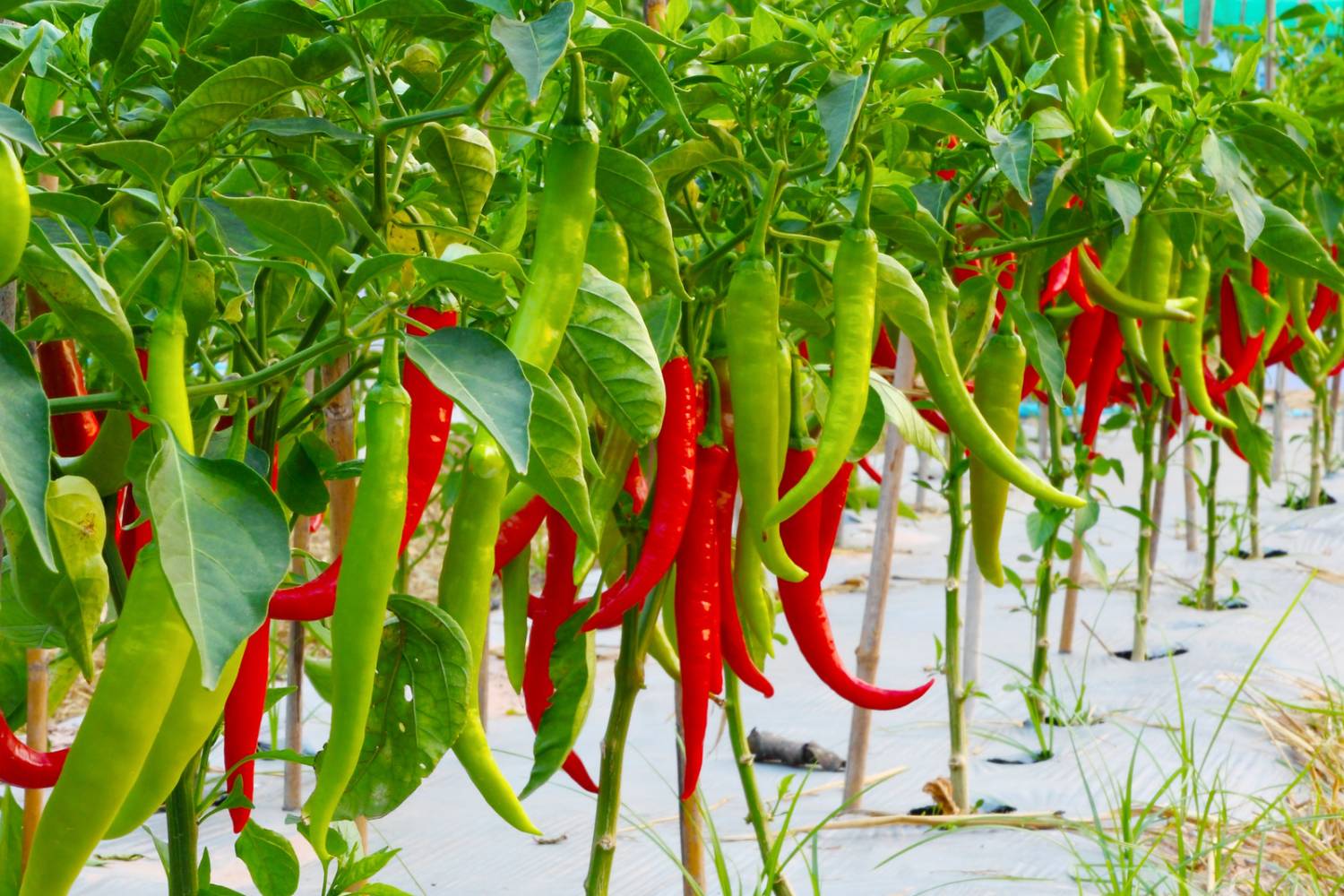Reveal the Best Fertilizers for Peppers: Necessary Nutrients for Thriving Plants
Reveal the Best Fertilizers for Peppers: Necessary Nutrients for Thriving Plants
Blog Article
Organic Vs. Synthetic Fertilizers: Which Is Best for Supporting Healthy And Balanced Pepper Plants?
In the world of supporting healthy and balanced pepper plants, the option in between artificial and organic plant foods stands as an essential decision with significant implications. While both options aim to offer essential nutrients to support plant development, the nuances of their effect on the soil, plant health, and the setting trigger a dispute that echoes throughout the gardening neighborhood. Recognizing the distinctive benefits and prospective pitfalls of each fertilizer kind is critical for pepper farmers looking for to enhance their returns while keeping an eco-conscious and sustainable strategy.
Advantages of Organic Fertilizers
Organic fertilizers supply a sustainable and environmentally-friendly technique to beneficial pepper plants, supplying essential nutrients without the usage of synthetic chemicals. These natural plant foods are obtained from natural resources such as compost, manure, bone dish, and algae, promoting dirt health and biodiversity. Unlike artificial plant foods, organic choices launch nutrients gradually, ensuring a consistent and well balanced supply for pepper plants to grow.
One considerable advantage of organic fertilizers is their ability to boost soil structure and water retention. By enhancing soil wellness, organic plant foods promote useful microbial activity, which aids in nutrient uptake by pepper plants. In addition, natural plant foods reduce the threat of chemical run-off, shielding water sources from contamination and safeguarding the atmosphere.
In addition, organic fertilizers contribute to long-lasting soil fertility by advertising the growth of useful dirt organisms. These organisms aid break down raw material, releasing nutrients in a type that is conveniently available to pepper plants. best fertilizers for peppers. By promoting a healthy and balanced soil ecosystem, organic plant foods sustain sustainable pepper growing practices that profit both plants and the setting
Drawbacks of Artificial Plant Foods
Artificial fertilizers, in comparison to their organic equivalents, posture different downsides when utilized to nourish pepper plants, affecting both plant wellness and ecological sustainability. One significant drawback of synthetic fertilizers is their propensity to leach nutrients from the soil swiftly.
In addition, the overuse of synthetic plant foods can add to water contamination. Excess plant foods not soaked up by plants can get rid of right into water bodies, leading to eutrophication, where algae blossoms diminish oxygen levels in the water, damaging aquatic life. Artificial plant foods are normally obtained from non-renewable resources, such as fossil gas, adding to carbon emissions and environmental degradation during their production.
Nutrient Absorption Comparison
When contrasting artificial and organic fertilizers in terms of nutrient absorption, natural fertilizers have the benefit of offering a much more balanced and slow-release resource of nutrients. Organic fertilizers consist of a selection of macro and micronutrients that are not only advantageous for the plants but additionally advertise healthy and balanced soil microbial task, which helps in nutrient uptake.
Additionally, natural fertilizers enhance dirt framework and water retention ability, allowing pepper plants to access nutrients a lot more successfully. This improved soil top quality facilitates root advancement, Website making it possible for far better nutrient absorption. Synthetic fertilizers, although initially boosting plant growth because of their high nutrient focus, might impede lasting nutrient absorption by degrading dirt wellness over time.
Environmental Effect Factors To Consider

On the various other hand, artificial fertilizers, although typically more instantly offered and concentrated to plants, can have damaging impacts on the atmosphere otherwise applied correctly (best fertilizers for peppers). Their production calls for high power inputs, causing greenhouse gas emissions and adding to environment change. The overflow of excess synthetic see this here plant foods can contaminate water resources, leading to eutrophication and harming water communities.
Best Fertilizer Practices for Peppers
When feeding pepper plants, optimizing nutrient uptake and lessening ecological influence are essential considerations. To accomplish this, it is necessary to comply with best fertilizer techniques customized to the certain requirements of pepper plants. One important method is to do a dirt examination before applying any fertilizers. This examination can determine the pH level of the dirt and recognize any kind of nutrient deficiencies, guiding you in choosing the most suitable fertilizer formula.
Another vital technique is to feed pepper plants at the ideal time. Normally, peppers take advantage of getting fertilizer at growing and after that once again when they start to flower. Over-fertilizing can lead to nutrition imbalances and harm the plants, so it is essential to adhere to advised application prices.
Furthermore, selecting a balanced plant food with an NPK ratio that fits pepper plants' needs is fundamental. Organic fertilizers, such as compost or manure, can be exceptional choices as they release nutrients slowly and improve soil framework with time. Synthetic plant foods can provide a fast nutrient increase when needed. Eventually, combining natural and artificial fertilizers deliberately can aid nurture healthy pepper plants while lessening environmental impact.
Final Thought

Organic plant foods use an environmentally-friendly and lasting method to beneficial pepper plants, providing important nutrients without the usage of artificial chemicals. Unlike synthetic plant foods, organic alternatives launch nutrients gradually, guaranteeing a steady and well balanced supply for pepper plants to grow.
Synthetic fertilizers, in contrast to their organic equivalents, position numerous disadvantages when used to nurture pepper plants, impacting both plant health and wellness and ecological sustainability. When comparing synthetic and natural plant foods in terms of nutrient absorption, organic plant foods have the advantage of giving an extra balanced and slow-release source of nutrients.Moreover, organic fertilizers enhance soil framework and water retention ability, allowing pepper plants to accessibility nutrients much more effectively.
Report this page